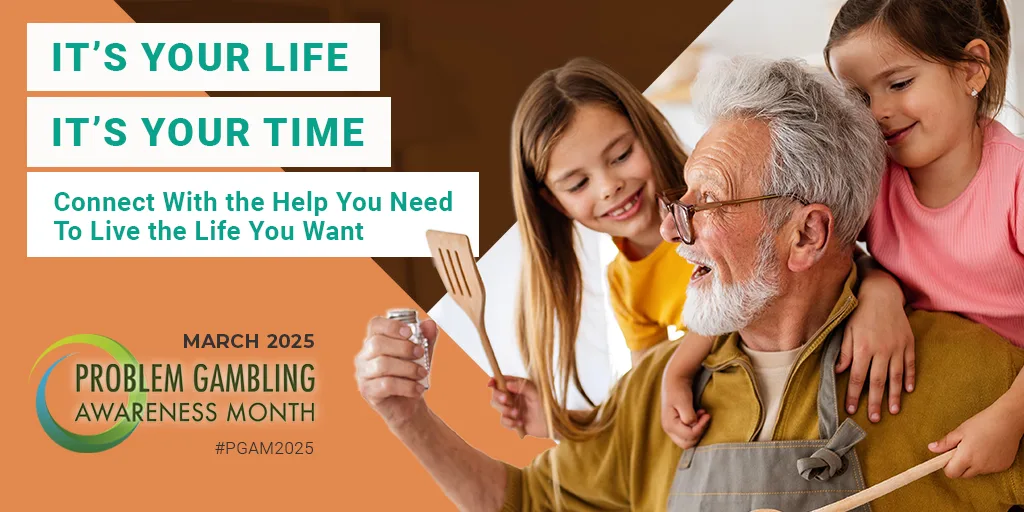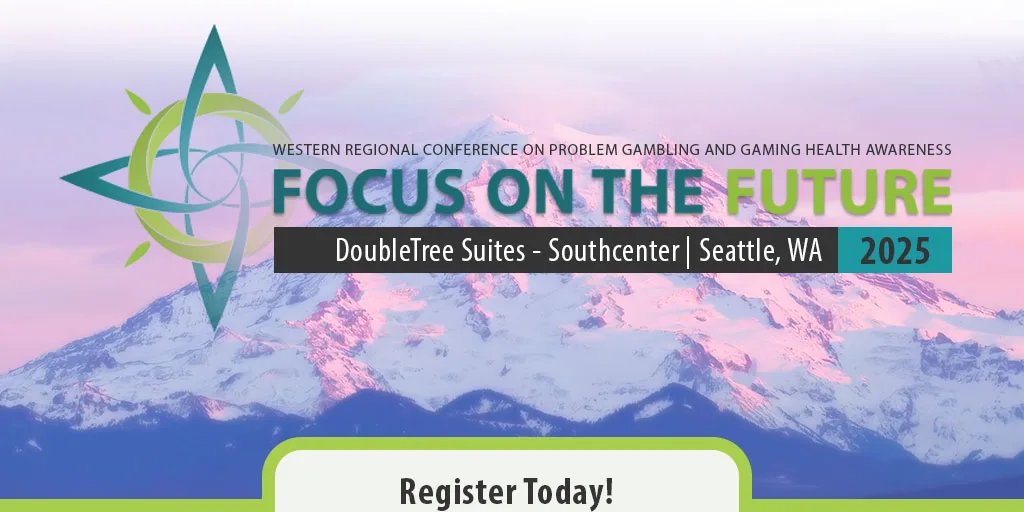
You Are Not Alone

March is Problem Gambling Awareness Month
It’s Your Life. It’s Your Time.
Take a look at Messaging, Events, Resources, and More!
– 50+ Community Awareness Campaign

Focus on the Future
May 5-8, 2025
This conference will provide valuable insights on the tools and resources available for effective treatment, prevention, community engagement, and recovery services, as well as offering information on trends and innovative topics in gambling and gaming that affect your work. By joining us at Focus on the Future, you will have a prime opportunity to collaborate with and learn from some of the best in the field. You’ll no doubt leave with some new connections and partnerships that may lead to enhanced and innovative approaches toward assisting those who are affected by problem gambling. Scholarships are available.

Youth Have the Power is now LIVE!
Parents and involved adults compete with many obstacles in raising healthy children. There is an endless supply of outside influences, and it can be difficult to prioritize the life lessons we wish to impart on our youth. Plenty of resources and information exist to help guide us, but there can be a lot of uncertainty in knowing what to use. Many adults believe that educating young people on gambling harms is unnecessary if they can’t legally access gambling, but the reality is that risk factors for problem gambling can start very early in life. At ECPG, we’re proud to introduce a new program that aims to bridge this gap in youth prevention – Youth Have the Power.

Join Our Team!
POSITION ANNOUNCEMENTS
Communications Assistant
Olympia, Washington

Confidential referrals to free or low-cost treatment in Washington
Help and information are available at our 24-hour, toll-free Washington Helpline or chat with a Helpline specialist here.

Our commitment
The ECPG Website is designed to provide information on education and treatment programs and services created and/or administered by the Evergreen Council on Problem Gambling. ECPG is a private, nonprofit organization offering programs and services for problem gambling and Gambling Disorder in Washington and throughout the Pacific Northwest.


Donate to ECPG
Help support our mission of increasing public awareness of problem gambling, expanding the availability of services for problem gamblers and their families, and encouraging research and programs for prevention and education.